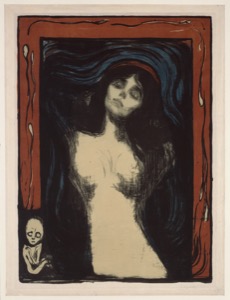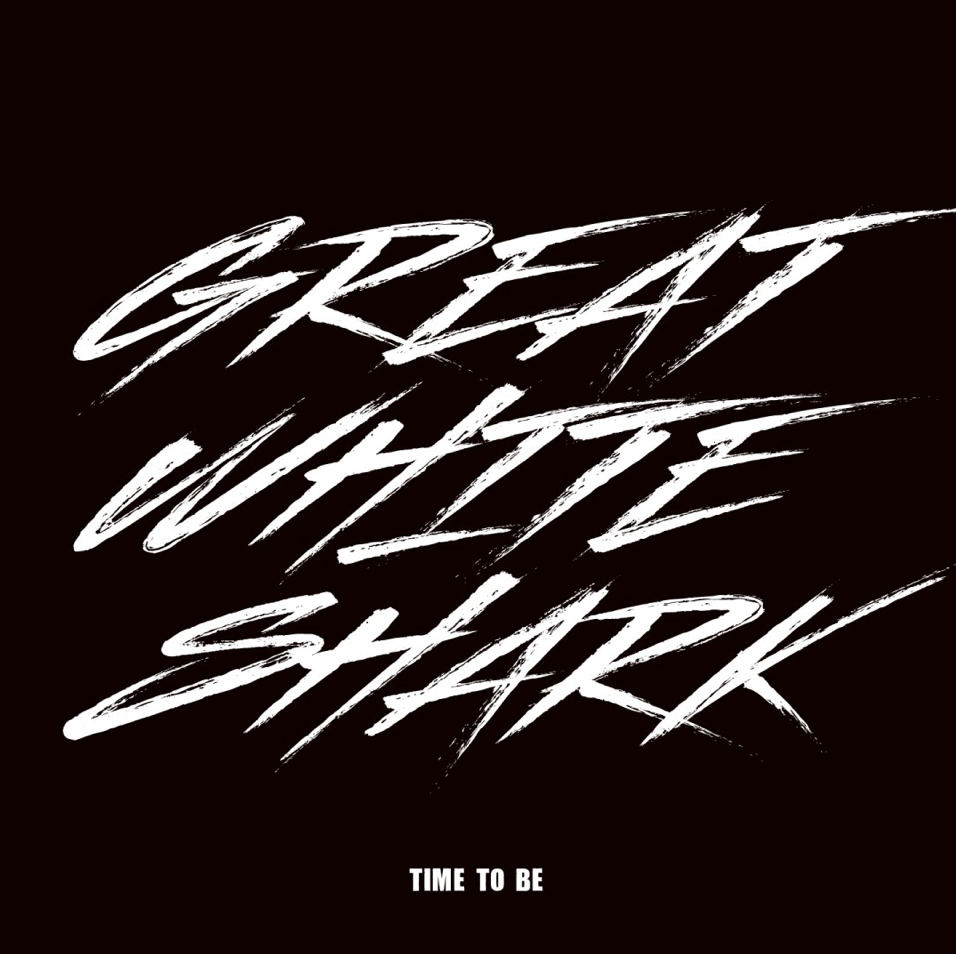
“There is something very crude and pure, almost poetical in the way a guitar can sound”: David Naville describes his new project, Great White Shark
David Naville is a busy musician. Not only he runs his own record label, Thisbe Recordings, while producing music for his main solo project, Pyrame – the Lausanne-born composer and music/music video producer also started his own alternative rock project: Great White Shark.
“It’s meant to bite” – that’s how he describes his darker stoner rock project. Along with guitars, the electronic and psychedelic samples of Great White Shark’s songs remind us why most of us fell in love with (guitar) music in the first place.
We caught up with David to know more about the story behind each song and the collaborative process behind his music videos. Keep reading to find out why guitar music is not dead, and why there’s a reason to be excited about the future of music.
“吉他的声音有一种非常原始和纯粹,几乎是诗意的东西”:大卫纳维尔描述了他的新项目,大白鲨
大卫·纳维尔 (David Naville) 是一位忙碌的音乐家。他不仅经营着自己的唱片公司 Thisbe Recordings,同时还为他的主要个人项目 Pyrame 制作音乐——这位出生于洛桑的作曲家和音乐/音乐视频制作人还开始了他自己的另类摇滚项目:Great White Shark。
“它是用来咬人的”——这就是他描述他的深色石头摇滚项目的方式。与吉他一起,Great White Shark 歌曲的电子和迷幻样本提醒我们为什么我们大多数人首先爱上了(吉他)音乐。以及为什么它这么好。
我们采访了大卫,以了解更多关于每首歌背后的故事以及他的音乐视频背后的合作过程。继续阅读以了解为什么吉他音乐没有消亡,以及为什么有理由对音乐的未来感到兴奋。
KEYI Magazine: How long have you been based in Berlin and what motivated your move here?
Great White Shark: I’ve been based in Berlin for six years now. After my studies in Physics and 15 years as a quantitative analyst in an investment bank in different cities (London, Tokyo, New York), I was looking for something new to do. That was back in 2014. I actually needed a reboot back then. I first completed an MBA in renewable energy here in Berlin, which was the initial motivation for my move. Eventually, I ended up making music.
KEYI 杂志:您在柏林工作多久了,是什么促使您搬到这里的?
大白鲨:我已经在柏林工作了六年。在我攻读物理学并在不同城市(伦敦、东京、纽约)的一家投资银行担任定量分析师 15 年之后,我一直在寻找新的工作。那是在 2014 年。那时我实际上需要重新启动。我首先在柏林完成了可再生能源的 MBA,这是我搬家的最初动机。最终,我最终完成了音乐创作。
KEYI Magazine: How does the city influence your sound?
Great White Shark: Berlin lives and breathes music. It is very hard not to be exposed to music in this city. Quite quickly after I settled down, the city re-ignited my long-term passion for music. Right in front of my eyes, the possibilities became obvious to me. If there is a place where it is possible to unleash ideas and creativity, then it is here.
Furthermore, the city keeps me engaged with the overall vibe of making music. I would say this is more in the way that Berlin has an impact on my music, rather than directly influencing my compositions. Above all, the city provides me with a sense of feasibility, a place where things can get done, a city where things happen. I am sort of living the “European dream” here. There is this latent feeling that “everything is possible” when it comes to producing music and music videos. This is a terrific driver.
KEYI 杂志:城市如何影响你的声音?
大白鲨:柏林生活和呼吸音乐。在这个城市,很难不接触音乐。在我安顿下来后,这座城市很快重新点燃了我对音乐的长期热情。就在我眼前,可能性对我来说变得显而易见。如果有一个地方可以释放想法和创造力,那就是这里。
此外,这座城市让我沉浸在制作音乐的整体氛围中。我想说这更多是因为柏林对我的音乐产生了影响,而不是直接影响我的作品。最重要的是,这座城市为我提供了一种可行性感,一个可以完成事情的地方,一个事情发生的城市。我在这里过着“欧洲梦”。在制作音乐和音乐视频时,有一种潜在的感觉,即“一切皆有可能”。这是一个了不起的司机。
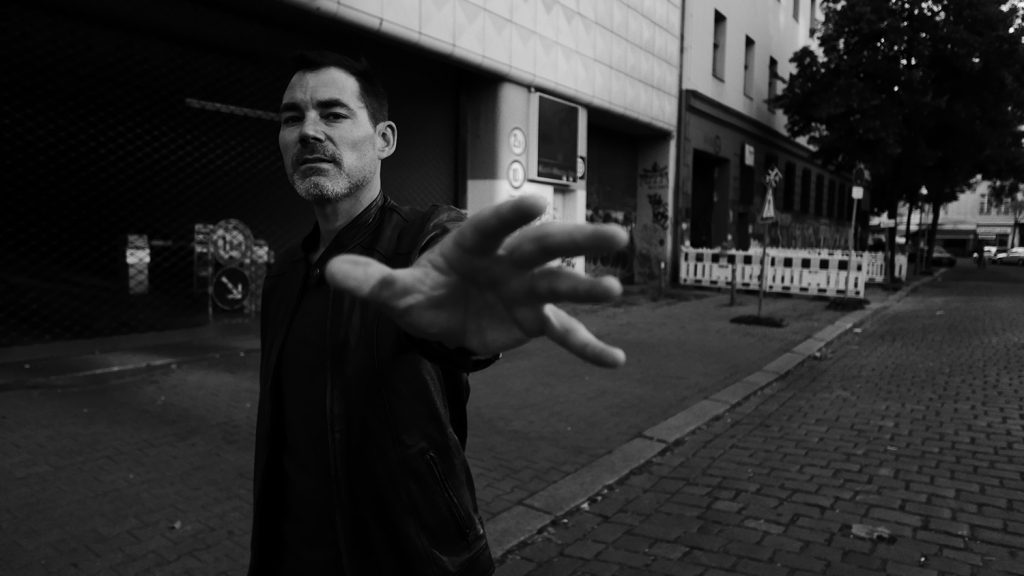
KEYI Magazine: Has the pandemic affected how you create and/or produce music?
Great White Shark: The pandemic appears to be a double-sided event.
On the one hand, it totally froze the live aspect of music, performances, clubs, etc. It hurt because we all enjoy and value those moments, excited to go out and perform. In that sense, the pandemic has slowed down my overall plan to perform live and further develop my project when it comes to stage performances.
On the other hand, it has been a time to re-think how to approach music and what to do in the field. In my case, I decided, among other things, to start my own electronic music record label, called Thisbe Recordings. It has also freed up some time to compose new songs and experiment with new ideas. In fact, I am planning to release a second Great White Shark album next year.
KEYI 杂志:大流行是否影响了您创作和/或制作音乐的方式?大白鲨:大流行似乎是一个双面事件。
一方面,它完全冻结了音乐、表演、俱乐部等的现场表演。它伤害了我们,因为我们都享受和珍惜那些时刻,兴奋地出去表演。从这个意义上说,大流行减缓了我现场表演的整体计划,并在舞台表演方面进一步发展了我的项目。
另一方面,现在是重新思考如何处理音乐以及在该领域做什么的时候了。就我而言,除其他外,我决定创办自己的电子音乐唱片公司,名为 Thisbe Recordings。它还腾出一些时间来创作新歌曲和尝试新想法。事实上,我计划明年发行第二张大白鲨专辑。
KEYI Magazine: Tell us a bit more about the creative process behind your debut EP, “Time to Be”.
Great White Shark: “Time to Be” summarizes some of the rock tracks I composed between 2017 and 2019. I decided to release five of them on my debut EP. I took my time because I am mostly focused on my main act Pyrame, which is electronic music, and my record label Thisbe Recordings.
Great White Shark is hence a kind of a side – but necessary – project. Necessary because this is my area of complete freedom – in whatever way possible. Should it be from a musical standpoint, lyrics that I am writing, or the music videos which are being produced for the tracks… I keep saying that Great White Shark is first and foremost “an attitude”: of being free, behaving the way you want to, say what you crave to say. It sounds familiar with the overall rock/grunge community, but it was another thing to actually deliver on those principles and come up with a five-track EP, along with five music videos, four remixes, CDs, etc. And the overall promotion process.
When it comes to creativity, it is driven by a few backbone “routines” of mine. For instance, by playing the guitar and the bass and looking for riffs and an overall arrangement for a song. Melodies come after the overall song direction is well defined. I spent a decent amount of time in the past going through the arsenal of classical music masterpieces of Bach, Tarrega, Brouwer, to name just a few, the best part comes when I just play freely and look for my own compositions.
Another “backbone routine” is to think about themes I would like to tackle in the songs. For instance, in “Doberman”, I wrote a song about daring to let things go, having no fear of tomorrow, and being confident about what is coming in life.
Another phenomenon I have been observing for years now and that I wanted to tackle in a song is modern narcissism and those obscure traits of human beings feeling self-important, egocentric, and narcissistic. The message conveyed by “Tapis Rouge” is exactly about that.
In “Last Night on Earth”, the approach is more optimistic and I do talk about the good things that happen later in life. Being well in my forties now, a period of my life that I was not especially looking forward to not long ago, turns out to be actually a great time.
In “Choices”, the myriad of choices we do have to make in our lives is being emphasized. With that strange sense of randomness and lack of control that we may feel about it. Don’t we make as many wrong choices as good ones? Is there any right way to navigate our lives?
“Someone Else´s City”, which is an instrumental track, is meant to convey all the emotions and great memories I have stacked up over the years spent abroad, living in someone else’s city. This is a song I am keen to dedicate to the friends I made along the way.
KEYI 杂志:请告诉我们更多关于您的首张 EP“Time to Be”背后的创作过程。
Great White Shark:“Time to Be”总结了我在 2017 年到 2019 年间创作的一些摇滚曲目。我决定在我的首张 EP 中发行其中的五首。我花了很多时间,因为我主要专注于我的主要表演 Pyram,即电子音乐,以及我的唱片公司 Thisbe Recordings。
因此,大白鲨是一种附带但必要的项目。必要的,因为这是我完全自由的领域——无论以任何可能的方式。无论是从音乐的角度,我正在写的歌词,还是正在为曲目制作的音乐视频……我一直在说大白鲨首先是“一种态度”:自由,行为想说什么就说什么。这听起来对整个摇滚/垃圾摇滚社区很熟悉,但真正实现这些原则并提出五首曲目 EP,以及五个音乐视频、四个混音、CD 等是另一回事。以及整个推广过程.
说到创造力,它是由我的一些骨干“例程”驱动的。例如,通过弹奏吉他和贝斯并寻找即兴演奏和歌曲的整体安排。旋律是在整体歌曲方向明确之后出现的。过去我花了相当多的时间浏览巴赫、塔雷加、布劳威尔的古典音乐杰作库,仅举几例,最好的部分是当我自由演奏并寻找自己的作品时。
另一个“骨干例程”是思考我想在歌曲中处理的主题。例如,在“杜宾犬”中,我写了一首关于敢于放手,不惧怕明天,并对生活中即将发生的事情充满信心的歌曲。
我多年来一直在观察并想在一首歌中解决的另一个现象是现代自恋和人类感到自负、以自我为中心和自恋的那些晦涩的特征。 “红豆杉”传达的信息正是关于这一点。
在“地球上的最后一夜”中,方法更加乐观,我确实谈论了以后生活中发生的好事。现在四十多岁了,这一段我不久前并不特别期待的人生时期,竟然是一段美好的时光。
在“选择”中,我们强调了我们在生活中必须做出的无数选择。带着我们可能会感觉到的那种奇怪的随机性和缺乏控制感。难道我们做出的错误选择和正确选择一样多吗?有没有正确的方式来驾驭我们的生活?
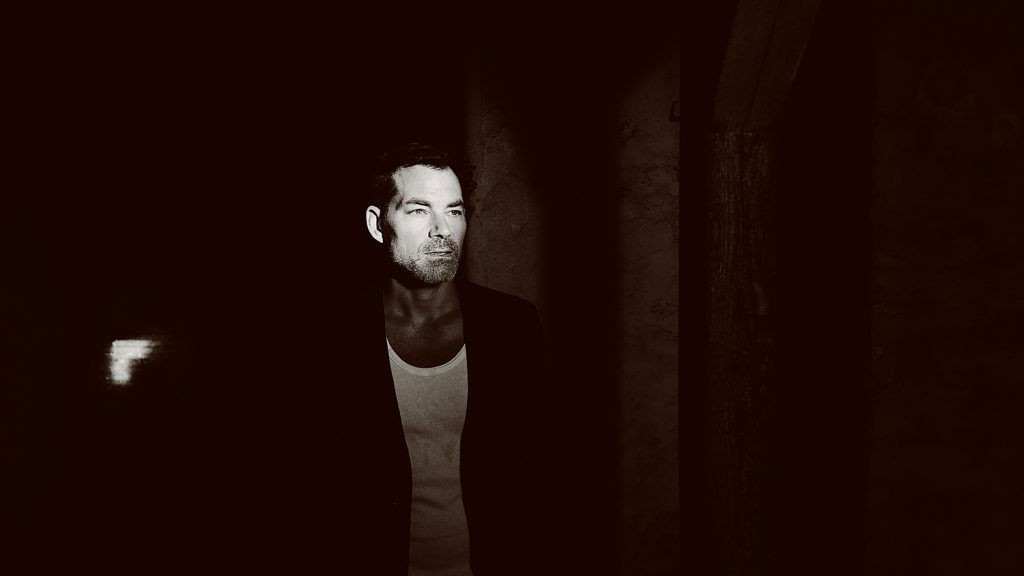
KEYI Magazine: What were the inspirations?
Great White Shark: Inspiration comes usually with a spike in emotions. All the songs have been composed and written based on something that happened, emotionally speaking, in my life. In fact, the whole EP is highly autobiographical. For instance, moving on in life, being amazed or disappointed by something, falling in love with someone, losing somebody close.
On top of this, there is a tendency to provoke, both in the songs as well as in the videos. It is actually an interesting thing to do, to look for boundaries. The worst thing that could happen is to do exactly what Main Street is providing you.
KEYI 杂志:灵感是什么?
大白鲨:灵感通常伴随着情绪的飙升。所有的歌曲都是根据我生活中发生的事情创作和创作的,从情感上来说。事实上,整张EP是高度自传的。例如,在生活中继续前进,对某事感到惊讶或失望,爱上某人,失去亲近的人。
最重要的是,无论是在歌曲还是在视频中,都有一种挑衅的倾向。寻找界限实际上是一件有趣的事情。可能发生的最糟糕的事情就是完全按照大街为您提供的服务。
KEYI magazine: There seems to be a lot of thought behind your video collaboration too. Could you tell us a bit more about the process?
Great White Shark: Producing music videos is the most extreme and intense aspect of the project. There is indeed a lot of organization and logistics that come along the way – at the same time, I really value and enjoy that part of the project, because it basically means making a short movie out of a song, alongside a film director that will give their personal visual interpretation of what I am conveying through the music.
Regarding the overall process of producing the five music videos of each track of the EP, things happened quite naturally. It all started with my drummer’s brother, who works in the video production space, and directed with his team the first music video “Doberman”. I then met a pivotal person, Christian Krueger, who wrote and directed “Tapis Rouge”, “Choices”, and made “Someone Else’s City” video out of a one-take drone flying over a city in Columbia. Finally, “Last Night on Earth” has been directed by Justus Naethler, along with the singer I worked with for that song. In terms of process, there is first a two-way conversation with the director, explaining the meaning and background of the song. Then ideas come up and we converge to what is actually doable and makes sense. The main context and storyline come from the director. This is something I really enjoy because it is most of the time something that comes as a surprise. At first, you ask: ”Are you sure this is doable?”. The answer: “Let´s try and do our best.” In the end, the result is beyond my expectations.
KEYI 杂志:您的视频合作背后似乎也有很多想法。你能告诉我们更多关于这个过程的信息吗?
大白鲨:制作音乐视频是该项目最极端和最激烈的方面。一路上确实有很多组织和后勤工作——同时,我真的很重视并喜欢这个项目的那一部分,因为这基本上意味着用一首歌制作一部短片,与一位电影导演一起对我通过音乐传达的内容给予他们个人的视觉解释。
关于制作EP每首歌的五个音乐视频的整个过程,事情发生得很自然。这一切都始于我鼓手的兄弟,他在视频制作领域工作,并与他的团队一起导演了第一部音乐视频“杜宾犬”。然后我遇到了一个关键人物,Christian Krueger,他编写并导演了“Tapis Rouge”、“Choices”,并用一架无人机飞越哥伦比亚的一个城市制作了“别人的城市”视频。最后,“地球上的最后一夜”由 Justus Naethler 和我合作创作这首歌的歌手共同执导。过程方面,首先与导演进行了双向对话,解释了歌曲的含义和背景。然后想法出现,我们会收敛到实际可行且有意义的事情。主要背景和故事情节来自导演。这是我真正喜欢的事情,因为大多数时候这是一个惊喜。一开始,你会问:“你确定这可行吗?”。答案是:“让我们尽力而为。”最后,结果出乎我的意料。
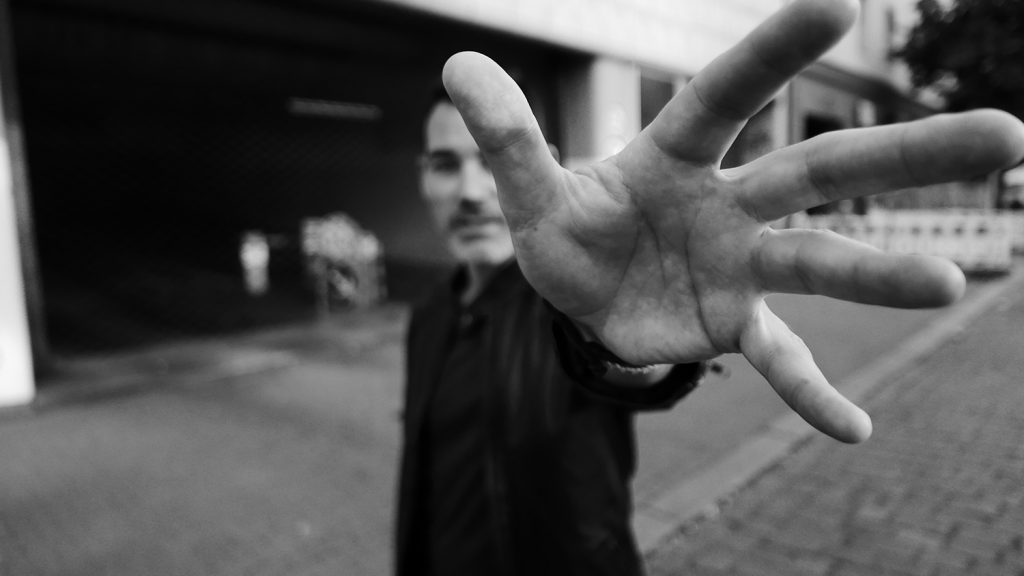
KEYI Magazine: Do you choose the artists you’d like to work with, or do they approach you with an idea?
Great White Shark: It is a mix of both approaches. In some cases, I reach out to people I know from some time and that I trust – for example, a drummer or a photographer I worked with in the past. In other cases, some people express their interest in working on the project, for example, when it comes to remixing a track. I am producing music and music videos for a few years now, and I believe this is a good way to build credibility and trust among ourselves. It has worked well so far. One of the best examples being the friendship and workflow we do have with Christian Krueger as well as with Justus Naethler. There is this envy to achieve something together and mutual trust in each other that is pretty powerful. Besides, marrying music and pictures/film together is an exciting thing to do. We do have more projects together in the near future.
KEYI Magazine:你是选择你想合作的艺术家,还是他们带着一个想法来找你?
大白鲨:这是两种方法的混合。在某些情况下,我会联系我认识和信任的人——例如,我过去合作过的鼓手或摄影师。在其他情况下,有些人表达了他们对项目工作的兴趣,例如,在重新混音时。我制作音乐和音乐视频已经有几年了,我相信这是在我们之间建立信誉和信任的好方法。到目前为止,它运作良好。最好的例子之一是我们与 Christian Krueger 以及 Justus Naethler 之间的友谊和工作流程。有这种共同成就的嫉妒和相互信任,这是非常强大的。此外,将音乐和图片/电影结合在一起是一件令人兴奋的事情。在不久的将来,我们确实有更多的合作项目。
KEYI Magazine: I like the mix of synth + guitars. Do you feel nostalgic about “guitar music” as a genre?
Great White Shark: I like the way you spin the question. Of course, the guitar has always been very present in the music I listened to over the years, from the 60s and 70s rock to classical and jazz guitar music, to experimental, progressive, or new wave music to grunge and nu-metal. I don’t think this will ever vanish. There is something very crude and pure, almost poetical in the way a guitar can sound. In fact, a guitar can be a serious cause of “issues” in a couple if you don’t balance things right [laughs]. So yes, I will always be nostalgic of those teenage years when I learned to play the guitar, and about the music I listen to since those times. But I am surely excited about the present and the future of rock music and its subgenres. Furthermore, mixing guitars and electronic music is surely a domain of strong interest for me.
KEYI Magazine:我喜欢合成器+吉他的组合。您是否对“吉他音乐”作为一种流派感到怀旧?
大白鲨:我喜欢你提出问题的方式。当然,从 60 年代和 70 年代的摇滚到古典和爵士吉他音乐,再到实验性、前卫或新浪潮音乐,再到垃圾摇滚和新金属,吉他在我多年来听过的音乐中一直很常见。我认为这永远不会消失。吉他的声音有一种非常原始和纯粹的东西,几乎是诗意的。事实上,如果你不能正确地平衡事情,吉他可能是导致“问题”的一个严重原因[笑]。所以,是的,我会永远怀念那些我学弹吉他的青少年时期,以及从那时起我听的音乐。但我肯定对摇滚音乐及其子流派的现在和未来感到兴奋。此外,吉他和电子音乐的混音对我来说肯定是一个非常感兴趣的领域。
KEYI Magazine: I’d love to hear your thoughts and feelings about the future of music.
Great White Shark: Ha! Good question…We live in a period of over-abundance, over-consumption, over-anything, so to speak. All this is facilitated by the ease of access. Nowadays it is so easy to have access to pretty much anything, everywhere, anytime. This includes, of course, music. This has been driven by the ability for everyone to, first, have access to the internet, and then to be able to browse it on a micro-computer directly in the hand. So the question is… Where are we going from here?
Taking a step back: 40 years ago, in 1980, I started to listen to music on vinyl and K7. Shortly after that, the CD came out. 20 years later, in 2000, the whole digital world started to disrupt pretty much any line of product, including the whole music landscape. Vinyl, K7, and CDs are still around, but they are not the main ways people listen to music. When it comes to live performances, clubs, festivals: they have not changed as much, but given the massive impact of the pandemic, it is difficult to predict how things will unfold when it comes to proximity.
From a production standpoint, the same phenomenon of ease of access has occurred. It is a lot easier nowadays to have your own DAW and produce music. This is a good thing. I believe this trend of people producing more music will also keep going.
To wrap it up, I think the key is to stay focused on what we like to do, keep producing and enjoying the music we like, and try not to get too overwhelmed with the over-abundance that exists nowadays both on the demand and supply sides of music. It is also a good opportunity to be more disciplined today than we use to in the past. I am pretty excited about the future and the future of music.
“Time to Be” is available to stream on SoundCloud.
KEYI 杂志:我很想听听您对音乐未来的想法和感受。大白鲨:哈!好问题…
可以说,我们生活在一个过度丰富、过度消费、过度任何事物的时代。所有这一切都得益于易于访问。如今,随时随地访问几乎任何东西变得如此容易。这当然包括音乐。这是由每个人都可以首先访问互联网,然后可以直接在手中的微型计算机上浏览的能力所驱动的。所以问题是……我们从这里去哪里?
退一步:40 年前,也就是 1980 年,我开始用黑胶唱片和 K7 听音乐。不久之后,CD出来了。 20 年后的 2000 年,整个数字世界开始颠覆几乎所有产品线,包括整个音乐领域。黑胶唱片、K7 和 CD 仍然存在,但它们不是人们听音乐的主要方式。说到现场表演、俱乐部、节日:它们并没有发生太大变化,但考虑到大流行的巨大影响,很难预测在接近时事情会如何发展。
从生产的角度来看,同样出现了易于访问的现象。现在拥有自己的 DAW 和制作音乐要容易得多。这是一件好事。我相信这种人们制作更多音乐的趋势也会继续下去。
总结一下,我认为关键是要专注于我们喜欢做的事情,继续制作和享受我们喜欢的音乐,并尽量不要被当今存在的供需过剩所淹没音乐的侧面。这也是今天比过去更加自律的好机会。我对音乐的未来和未来感到非常兴奋。
“Time to Be”可在 SoundCloud 上播放。
Interview by Yessica Klein




